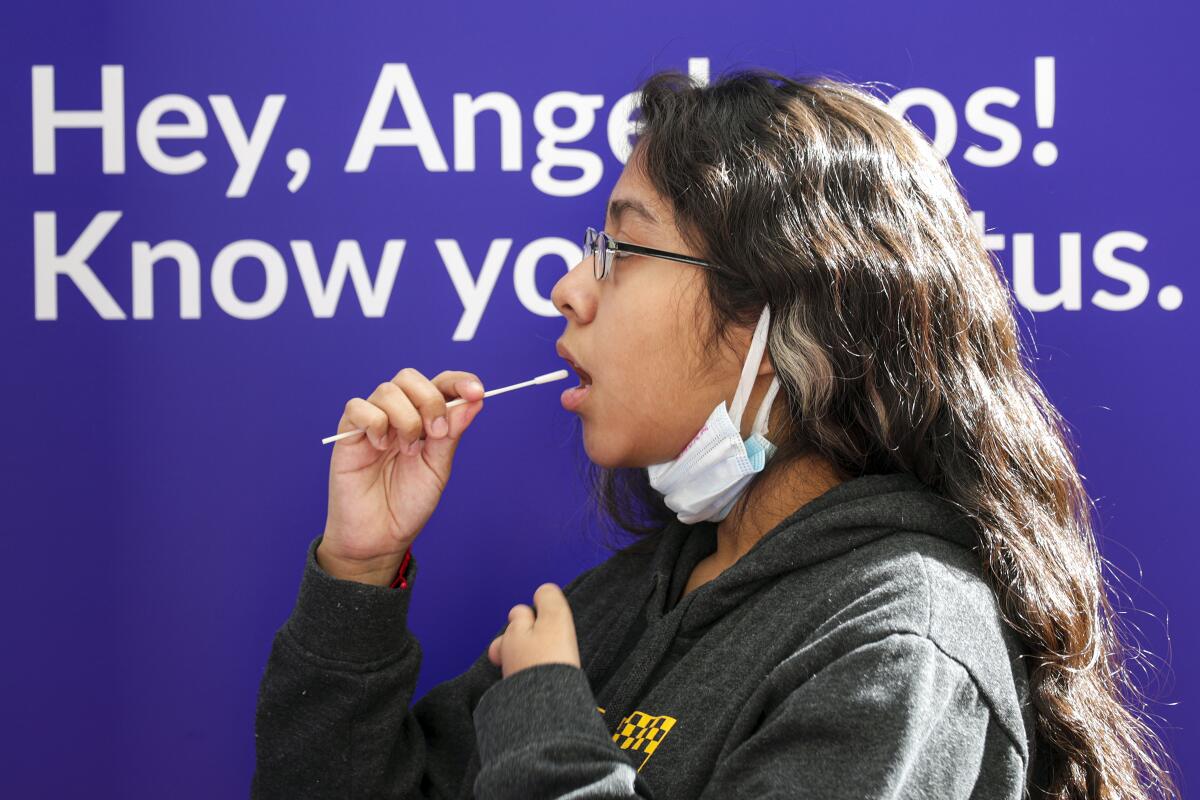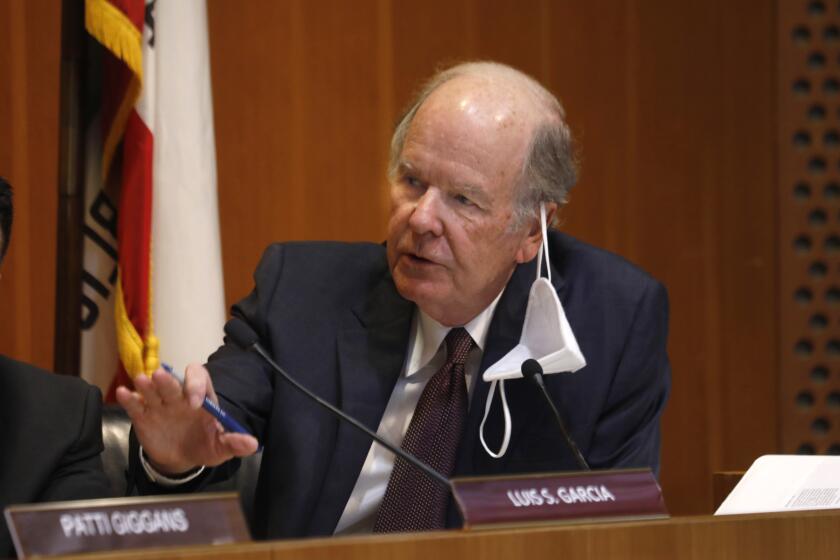California will crack down on surprise coronavirus testing fees under new law

- Share via
SACRAMENTO — Health insurers must cover the cost of coronavirus tests under a bill signed Friday by Gov. Gavin Newsom that ensures Californians do not have to pay out-of-pocket fees or contend with prior authorization requirements, which have left some consumers with surprise medical bills and bureaucratic headaches.
Federal and state laws were passed during the pandemic to provide free testing to limit the spread of COVID-19, but Sen. Richard Pan (D-Sacramento) said patients are still being charged inappropriately. Pan said his bill, Senate Bill 510, eliminates any ambiguity about the cost-free provisions while also making the measure retroactive to March 4, 2020, when Newsom declared a state of emergency for COVID-19.
He added that the state must ensure that no one declines to get a coronavirus test because of the burden of a co-pay or fear of fees that may be billed later. The bill also covers COVID-19 vaccines.
“This is about public health,” Pan said in an interview. “We don’t want to be flying blind as a society. When people think they might be infected, we want them to get tested during a pandemic. We need to minimize barriers.”
With more workplaces and schools requiring proof of COVID-19 vaccinations or regular testing, Pan said the new law will ensure those costs don’t go directly to employers or employees. The cost-free testing and vaccines apply whether a person goes to an in-network or out-of-network provider.
“This bill will also ensure that workers who chose not to be vaccinated and prefer to do the weekly testing … are not left with the burden of the co-pay for these particular tests, which is something I know employee organizations and laborers would be concerned about,” Pan said.
Before the end of the legislative session Sept. 10, Democratic lawmakers had been considering controversial proposals to mandate vaccinations in the state and allow employers to require workers to be vaccinated. Companies can require workers to be vaccinated under federal guidance, with exemptions for religious or medical reasons, but businesses had hoped a state law would shield them from potential lawsuits. Both proposals were ultimately dropped.
But some workplaces and schools are moving forward with vaccine mandates. The state has already ordered that healthcare workers must be fully vaccinated and required school employees and state workers to get vaccinated or take regular coronavirus tests. Los Angeles public schools will require all children 12 and older to be fully vaccinated against COVID-19 by January to enter campuses.
Senate Bill 510 would also require that testing and vaccines be made cost-free during future pandemics. The bill was sponsored by the California Medical Assn. and supported by the California Teachers Assn. and Service Employees International Union California.
“SB 510 will ensure that any Californian who wants a COVID-19 test or vaccine can get one without having to pay extra out-of-pocket costs,” said Anthony York, a spokesman for the California Medical Assn. “At a time when health inequities have been laid bare in the healthcare system, SB 510 ensures that all Californians regardless of race, income, or geographic region are able to receive a vaccination and testing, which will remain necessary until the conclusion of the pandemic, without unnecessary hurdles.”
The measure nearly failed to reach Newsom’s desk because it lacked votes in the Assembly, but the bill passed after Pan agreed to some changes that defined which tests were covered — diagnostic tests for those with symptoms or who have been exposed, and screening for travelers, asymptomatic workers and students or close contacts of known cases. The bill also removed an urgency measure that would have made it effective immediately. Instead, the bill will go into effect Jan. 1 but remains retroactive to March 2020.
The Department of Finance opposed the bill, saying it could create future cost pressures within state health programs.
Opponents, which included the California Assn. of Health Plans, argued that making the bill retroactive is unconstitutional and that applying the provisions to future pandemics is premature.
“The bill also exceeds the federal mandate for COVID-19 testing coverage by requiring health plans to cover the costs of testing for employment purposes,” a spokesperson for the California Assn. of Health Plans said. “These requirements will result in a substantial increase in healthcare premiums and legitimize fraudulent practices and artificially high testing costs by out-of-network testing providers.”
More to Read
Sign up for Essential California
The most important California stories and recommendations in your inbox every morning.
You may occasionally receive promotional content from the Los Angeles Times.














